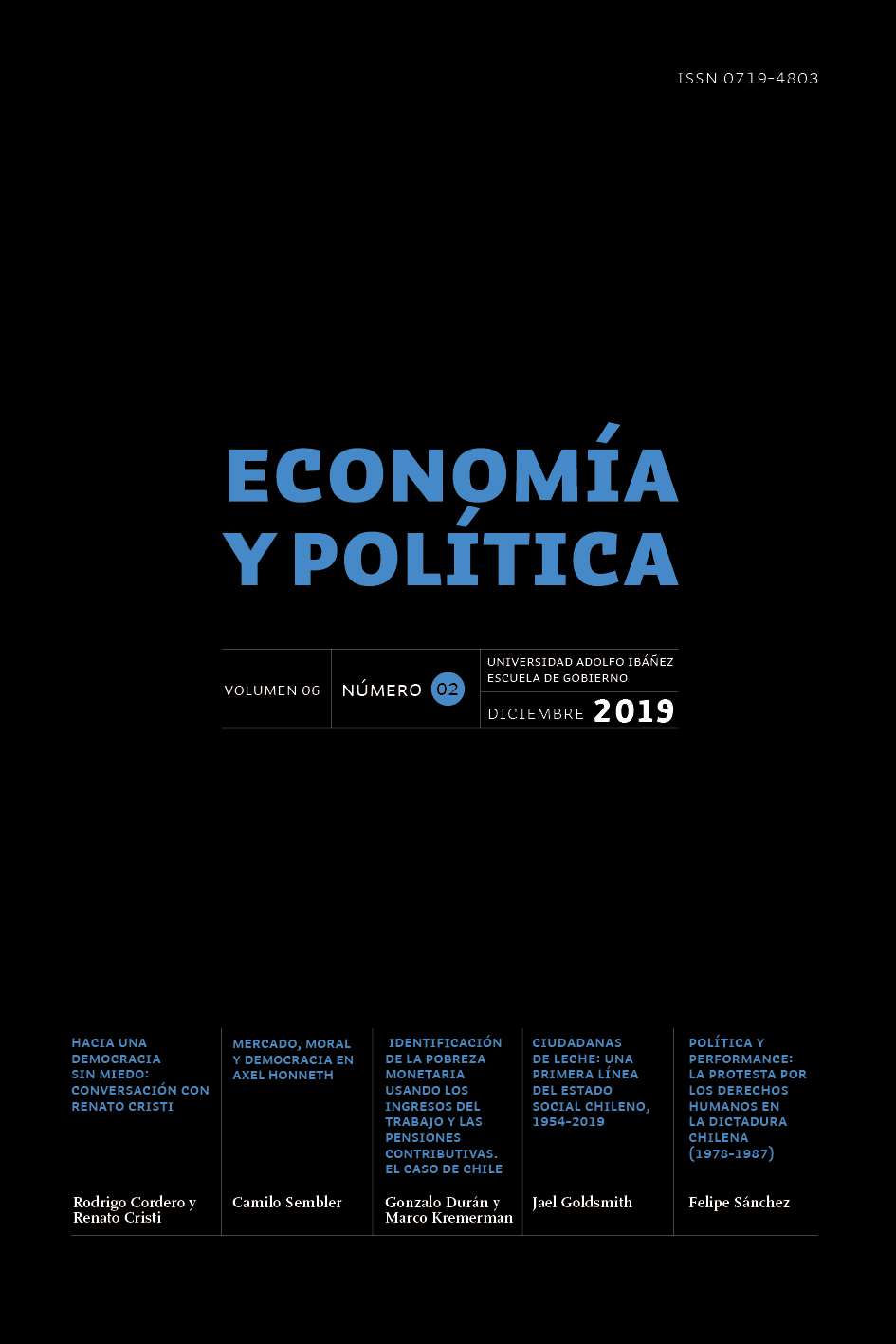Infant-maternal Health and Milk Programs: At the Front Line of the Chilean Social State for Women 1954-2019
DOI:
https://doi.org/10.15691/07194714.2019.008Keywords:
Milk Programs, Public Health, Welfare Regimes, Comparative Historical AnalysisAbstract
This article traces the trajectory of the Chilean state through its infant-maternal health programs. In particular, it focuses on the Programa Nacional de Alimentación Complementaria/ National Program of Supplemental Foodstuff (PNAC) which combines a comprehensive preventative health program with milk distribution. The analysis reveals changes and continuities in modes of building and exercising citizenship as well as the state at the central and neighborhood level. In concrete terms, the PNAC serves as a prism to reflect fluctuations in the public-private balance, processes of commodification and decommodification and the gender regime. In spite of two radical changes in the political, economic and welfare regimes during this period, the examination of the front-line of the social state in terms of infantmaternal services reveals more continuity than change. The engaged methodology constructs a narrative of state that weaves macro visions of the state –collected in government archives and databases, interviews with political and health authorities– with micro-narratives collected through two years of intensive in-site research at Santiago health clinics. This second approach permits a qualitative analysis of the changes and negotiations over the correct role of health clinics as a first line of the social state; these oscillate between the idea of a community center that links citizens to the state and an agency that limits itself to distribute benefits. The contributions are both empirical, revealing a program that while key in both the demographic and nutritional transitions has been under- analyzed in accounts of the Chilean social state; and theoretical, highlighting mechanisms of continuity that help state capacity in terms of infant-maternal healthcare in Chile.


